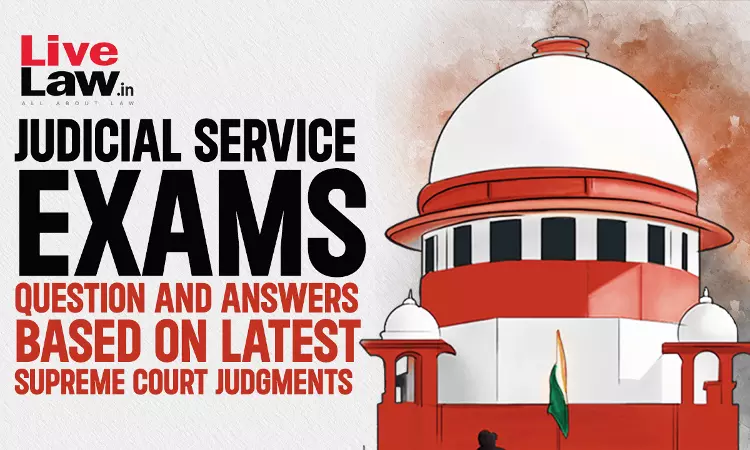Important MCQ's Based On Latest Supreme Court Judgments For Law Examinations
Yash Mittal
17 July 2024 12:59 PM IST

Next Story
17 July 2024 12:59 PM IST
Q 1. The Court called on a Public Servant under Section 319 CrPC without following the mandatory requirement of prior sanction to prosecute the public servant for the offence committed under the Prevention of Corruption Act, 1988 (PC Act). Decide.a. No Cognizance can be taken against the public servant for want of sanction under Section 19 of the PC Act.b. prosecution sanctioning is not...
